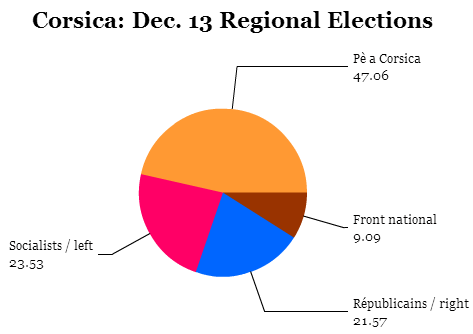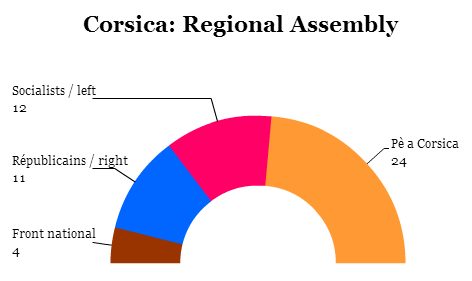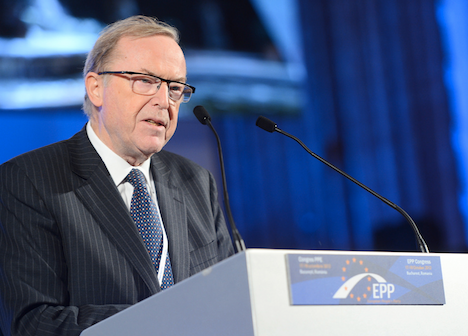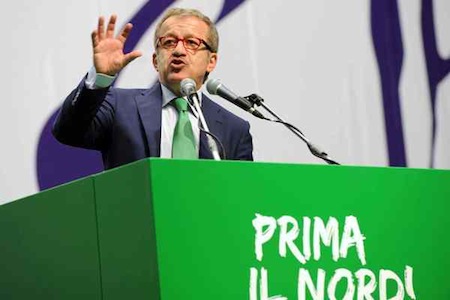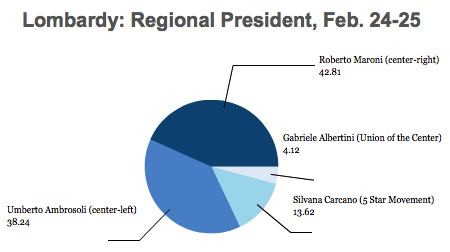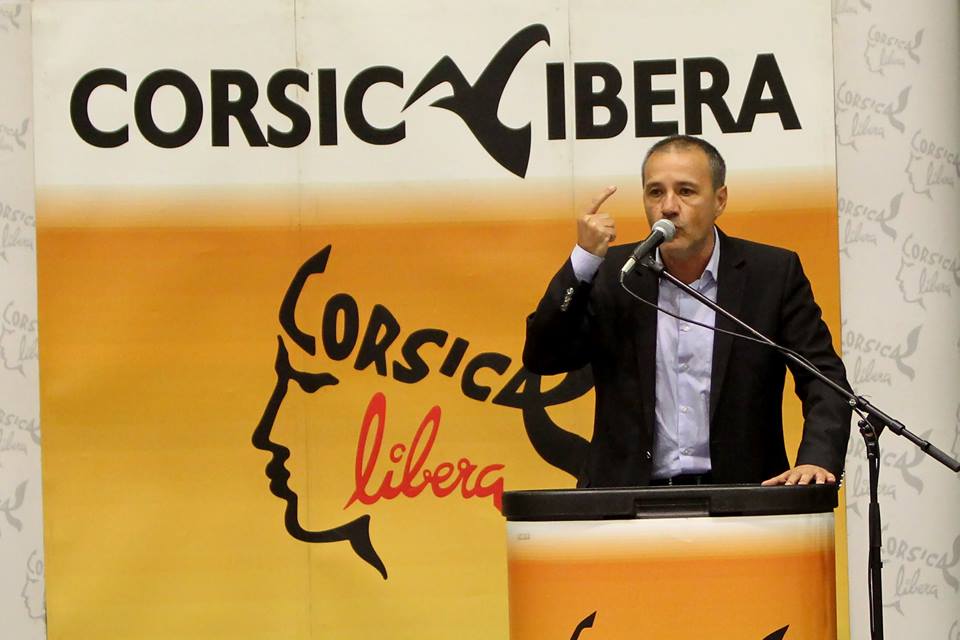
Forget Scotland or Catalonia. Forget Wallonia and Flanders. Forget the Basque Country or Republika Srpska.![]()
![]()
The hot separatist movement in 2016 might be in Corsica, the French-controlled island where Napoleon Bonaparte was born and which sits roughly 100 miles off France’s southeastern coast.
Corsica’s rising nationalist tide might this year outshine Catalonia, where a new regional government with a mandate to seek independence was sworn in last week, and Scotland, where the Scottish Nationalist Party hopes that local elections in May will boost its hold on the regional parliament and advance a fresh independence referendum.
For the first time, an explicitly nationalist coalition now controls Corsica’s regional government after it unexpectedly triumphed in December’s regional elections. That’s exactly one more region than the far-right Front national controls, despite the hype that Marine Le Pen and her allies could take power in up to six of France’s 13 newly consolidated ‘super-regions.’ A movement that has long been fragmented into myriad camps and ideologies, often violent, is now more united than ever and committed to political engagement.
* * * * *
RELATED: Why isn’t separatism or regionalism more dominant in the politics of Bretagne?
* * * * *
Once rooted in political terrorism, Corsican nationalism has now turned to a more peaceful approach that appears to be attracting larger numbers of voters. Though the origins of Corsica’s unique regional flag, featuring a Moor’s head wearing a white bandanna, may be lost to the puzzles of history, it is nonetheless as much a symbol of the Corsican nation as the Scottish saltire.
Shortly after regional elections, when a wave of violence against immigrants (including an attack on a Muslim prayer room) threatened to mar the new nationalist government, its leaders united to decry the violence, blaming it on the anti-Muslim rhetoric of the Front national. Though the incident raised tensions between Corsican nationalists and prime minister Manuel Valls, who clumsily reiterated state’s control over Corsica and sent France’s interior minister Bernard Cazeneuve to the Corsican capital of Ajaccio, the unrest subsided soon after the new year.
Corsica’s new regional government will have two years to demonstrate that it can maintain its united nationalist front, provide capable governance and credibly advocate for greater Corsican autonomy. For the first time in years, Corsica’s status might even become an important issue in the upcoming 2017 presidential election.
Most importantly, if 2016 does become a breakout year for Corsican sovereignty, it will reinforce separatist trends not only in Scotland and Catalonia, but across Europe, catalyzing autonomy movements both familiar (e.g., Transnistria, Flanders and Kurdistan) and novel (Bavaria, Sardinia and Russian-majority parts of the Baltic States).
Corsica — a small island with a long history
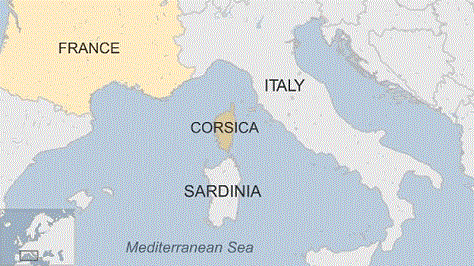
Corsican sovereignty might not top the list of pressing European policy matters. But it’s an island with a long history, controlled by the Greeks, the Romans and many others from antiquity through the present day. For nearly 400 years from 1284, it was ruled by Genoa, the Italian city-state, until Corsican nationalists won independence in 1755.
Pasquale Paoli, who drove the Genoese from the island, established an Enlightenment-influenced government, with a written constitution, universal suffrage for men and women and parliamentary rule, and Paoli remains a Corsican hero despite the republic’s fall to France in 1769. France has controlled the island ever since, bringing it under the thumb of one of Europe’s most consistently centralized national governments. Compared to the United Kingdom, Germany or even Italy or Spain, the central government in Paris has long been reluctant to cede power to France’s regions, including one as idiosyncratic and sometimes turbulent as Corsica.
For Paoli’s descendants, the dream of an independent Corsica isn’t necessarily so farfetched. Poland, for example, lost its sovereignty for centuries — the Polish-Lithuanian Commonwealth collapsed in 1795, a short-lived Polish republic from 1918 to 1939 was soon overrun by Nazi Germany and a postwar Polish republic remained a Soviet satellite until 1989.
Corsica’s population of around 325,000 is about the same as Iceland and just a bit less than Malta. The island has its own indigenous language, Corsu, which is more closely related to the Tuscan dialect of Italian than to French and, indeed, Corsica lies far closer to the Italian mainland and the Italian island of Sardinia than to the French mainland. Only around two-thirds of Corsica’s population can speak Corsu, however, and the French language, universally spoken by all Corsicans, has long dominated official matters, education and public life. Continue reading Corsican nationalists could achieve breakthrough status in 2016
